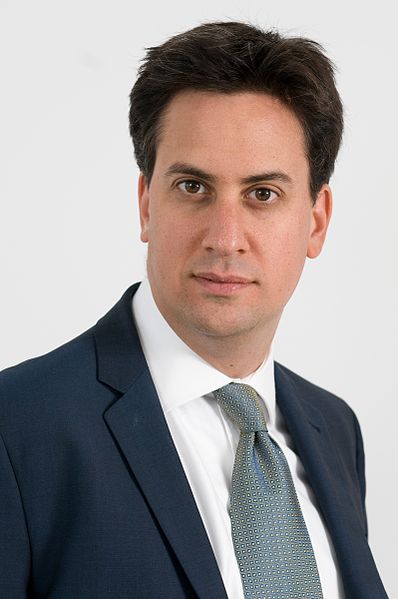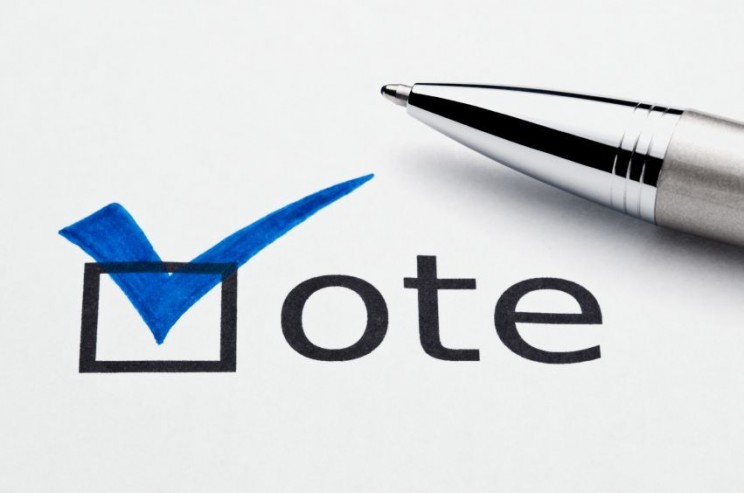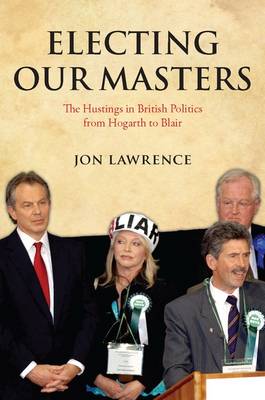The National Health Service (NHS) has never just been about the state’s provision of universal healthcare. Since 1948, it has been invested with a spectrum of ‘British values’, including decency, fairness, and respect. Featured in the Opening Ceremony of the London 2012 Olympic Games, and hailed in polls as the thing that makes people most proud of being British, the NHS enjoys widespread affection.
The post Does everyone love the National Health Service? Uncovering history’s critics appeared first on OUPblog.
The general election of May 2015 brought an end to five years of coalition government in Britain. The Cameron-Clegg coalition, between 2010 and 2015, prompted much comment and speculation about the future of the British party system and the two party politics which had seemed to dominate the period since 1945. A long historical perspective, however, I think throws an interesting light on such questions.
The post Party games: coalitions in British politics appeared first on OUPblog.
As the UK General Election draws near, the economy has again been the over-riding feature of the campaign. Yet the debate itself has been pretty narrow, being principally framed around ‘austerity’ and the reduction of the size of the government’s budget deficit. The major political parties are all committed to eradicating this deficit, with the main question being the time-frame in achieving this goal.
The post Putting industrial policy back on the agenda appeared first on OUPblog.
If you want to win votes and get elected in Britain, at least in general elections, then you had better get a party. The occasional and isolated exceptions only prove the rule. Before the 2010 general election, in the wake of the parliamentary expenses scandal, there was speculation that independent candidates might do unusually well, but in the event this did not happen. Elected politicians have a wonderful capacity for persuading themselves that their electoral success is to be explained by their obvious personal qualities, but the evidence is all against them.
The post How to win the 2015 General Election appeared first on OUPblog.

By Matthew Flinders
First it was football, now its politics. The transfer window seems to have opened and all the main political parties have recruited hard-hitting spin-doctors — or should I say ‘election gurus’ — in the hope of transforming their performance in the 2015 General Election. While some bemoan the influence of foreign hands on British politics and others ask why we aren’t producing our own world-class spin-doctors I can’t help but feel that the future of British politics looks bleak. The future is likely to be dominated by too much shouting, not enough listening.
Dante is a fifteen-year old African-American teenager with a big Afro hairstyle. He looks into the camera and with a timid voice tells the viewer ‘Bill de Blasio will be a Mayor for every New Yorker, no matter where they live or what they look like – and I’d say that even if he weren’t my dad’. This was the advert that transformed Bill de Blasio from a long-shot into a hot-shot and ultimately propelled him into office as the 109th and current Mayor of New York. De Blasio also benefitted from a well-timed sexting scandal and an electorate ready for change but there can be no doubting that the advert in which his son, Dante de Blasio, featured was a game changer. Time Magazine described it as “The Ad That Won the New York Mayor’s Race”, the Washington Post named it ‘Political Advert of 2013’ — “No single ad had a bigger impact on a race than this one”.
 Such evidence of ‘poll propulsion’, ‘soft power’ and ‘data optimization’ has not gone without notice on this side of the Atlantic and a whole new wave of election gurus have been recruited to help each of the main three political parties (Nigel Farage, of course, would never recruit such blatant overseas talent, ahem). The Liberal Democrats have recruited Ryan Coetzee who played a leading role significantly increasing the Democratic Alliance’s share of the vote in South Africa. The Conservatives have appointed the Australian Lynton Crosby with his forensic focus on ‘touchstone issues’, while last month the Labour Party revealed they had hired one of President Obama’s key strategists, David Axelrod, to craft a sharp political message and re-brand Ed Miliband.
Such evidence of ‘poll propulsion’, ‘soft power’ and ‘data optimization’ has not gone without notice on this side of the Atlantic and a whole new wave of election gurus have been recruited to help each of the main three political parties (Nigel Farage, of course, would never recruit such blatant overseas talent, ahem). The Liberal Democrats have recruited Ryan Coetzee who played a leading role significantly increasing the Democratic Alliance’s share of the vote in South Africa. The Conservatives have appointed the Australian Lynton Crosby with his forensic focus on ‘touchstone issues’, while last month the Labour Party revealed they had hired one of President Obama’s key strategists, David Axelrod, to craft a sharp political message and re-brand Ed Miliband.
It was David Axelrod’s former Chicago firm — ‘AKPD Message and Media’ — that had made the Dante advert for Bill de Blasio.
Of course, such spin-doctors, advisers, and consultants have always and will always exist in politics. The existence of new forms of off-line and on-line communication demands that political parties constantly explore new techniques and opportunities to improve their standing but I cannot help feel that with the recruitment of such powerful electoral strategists we risk losing touch with what politics is really about. We risk widening the worrying gap that already exists between the governors and the governed. ‘Resilience’, it would appear, seems to be the buzzword of modern party politics as a General Election approaches. It is about who can promote a powerful narrative and deliver an aggressive onslaught; it is about a form of ‘attack politics’ in which a willingness to listen or compromise is derided as weakness, and weakness cannot be tolerated; it is a form of politics in which family and friends become political tools to be deployed in shrewd, cunning and carefully crafted ways.
But does turning to the masters of machine politics from Australia and America bring with it the risk that the campaign will become too polished, too professional, too perfect?
David Axelrod’s role in relation to Ed Miliband provides a case in point. Apparently opinion polls suggest that poor Ed is viewed as too ‘nerdy’ and more than a little bit ‘weird’. The strategists suggest that this ‘image problem’ is a weakness that must be addressed through a process of re-branding. The danger, of course, of course is that by knocking-off all Ed’s quirks and peculiarities you actually end up with just another production line professional politician. Personally, I quite like politicians that are a bit different, even weird. Isn’t that why people find Boris Johnson and Nigel Farage so annoyingly refreshing?
A really smart election strategist might dare to think a little differently; to turn the political world upside-down by focusing not on who can shout the loudest for the longest but on the art of listening. As Andrew Dobson’s brilliant new book — Listening for Democracy — underlines the art of good listening has become almost completely ignored in modern politics despite being prized in daily conversation. Were any of the foreign election gurus employed for their listening skills? No. And that’s the problem. That’s why the future feels so bleak.
Matthew Flinders is Founding Director of the Sir Bernard Crick Centre for the  Public Understanding of Politics at the University of Sheffield and also Visiting Distinguished Professor in Governance and Public Policy at Murdoch University, Western Australia. He is the author of Defending Politics (2012).
Public Understanding of Politics at the University of Sheffield and also Visiting Distinguished Professor in Governance and Public Policy at Murdoch University, Western Australia. He is the author of Defending Politics (2012).
Subscribe to the OUPblog via email or RSS.
Subscribe to only politics articles on the OUPblog via email or RSS.
Image credit: Ed Miliband. UK Department of Energy. Crown Copyright via WikiCommons.
The post Dante and the spin doctors appeared first on OUPblog.


By Matthew Flinders
Hands up if you’ve heard of National Voter Registration Day? And in the somewhat unlikely event that you have, did you realise that it took place last month?
If this momentous milestone passed you by, you’re not alone. Whatever 5 February means to the people of the United Kingdom, it’s safe to assume that electoral participation doesn’t figure prominently. This is not a surprise; it reflects a deep-seated public disengagement from politics, as indicated by the fact that only two thirds of eligible voters in the 2010 general election actually voted. Throughout the twentieth century, general election turnouts almost always exceeded 70%, but that’s a level of participation that has not been seen since 1997. Incidentally, the highest turnout since 1900 was 86.8% in January 1910, though only rate-paying men over the age of 21 could vote.
Low voter turnout is clearly a problem, but arguably a much greater worry is the growing inequality of that turnout. As a recent report from the Institute for Public Policy Research makes clear, the United Kingdom is very much a ‘divided democracy’, with electoral participation among the young and the poor declining dramatically. In the 1987 general election, for example, the turnout rate for the poorest income group was 4% lower than for the wealthiest. By 2010 the gap had grown to a staggering 23 points. A similar pattern is observable in relation to age groups. In 1970 there was an 18-point gap in turnout rates between 18–24-year-olds and those aged over 65; by 2005 this gap had more than doubled to over 40 points, before narrowing slightly to 32 points in 2010. ”If we focus on participation within these age-groups,” the IPPR report concludes “we can see that at the 2010 general election the turnout rate for a typical 70-year-old was 36 percentage points higher than that of a typical 20-year-old.”
If this isn’t bad enough there is little evidence that young people will simply start voting as they get older. On the contrary, the IPPR’s research suggests that “younger people today are less likely than previous generations to develop the habit of voting as they move into middle age.” These trends mean that politicians tend to address themselves to the older and richer sections of society – the people, in other words, that are most likely to vote. This, in turn, reinforces the views of the young and the poor that politicians don’t care about them. And that, naturally, leads to even greater political estrangement.
So what’s the solution? How do we re-establish a connection between ordinary people and politicians? In particular, how do we persuade the young and the poor that the political system really does have something to offer them?

The answers lie not in quick fixes or technological solutions – such as the introduction of compulsory voting, changing the ballot paper or promoting ‘digital democracy’ – but in adopting a fundamentally deeper, richer and more creative approach to democratic engagement. People will only vote – be they young or old, rich or poor – when they understand why democratic politics matters and what it can deliver. Therefore, to increase electoral participation we must focus on promoting the public understanding of politics from all perspectives (conservative, traditional, radical, etc.) in a way that demonstrates that individual responses to collective social challenges are rarely likely to be effective. It’s this deeper understanding, this notion of political literacy promoted by Sir Bernard Crick and defined as ‘a compound of knowledge, skills and attitudes’ that citizens can use to navigate the complex social and political choices that face us all. Political literacy can be seen as a basic social requirement that empowers people to become politically aware, effective, and engaged while also being respectful of differences of opinion or belief.
In this regard, the message from survey after survey is a dismal one. Large sections of the British public appear to know very little about the political system. Even relatively basic questions such as “What do MPs do?” or “What’s the difference between Parliament and the Executive?” tend to elicit a mixture of mild embarrassment and complete bafflement.
Given that levels of political literacy are so low, it’s little surprise that many people choose not to vote. They’re unaware of the very real benefits the political system delivers for them (clean water, social protection, healthcare, education, etc.) and they no longer believe that they can become the engine of real social change. And yet they can. Worse, by opting out of elections they risk diminishing their representation as politicians focus their messages on the groups that do vote. Young people are constantly reminded that to be “uneducated” – let alone innumerate or illiterate – is to risk deprivation and vulnerability, but in many ways to be politically illiterate brings with it exactly the same risks. Moreover, the impact of declining political literacy isn’t only felt at the individual level. With so many people in society alienated from politics, democracy itself is weakened
Such arguments are by no means abstract concerns. On 7 May 2015, a General Election will be held on the basis of individual voter registration rather than the previous system of household voter registration. Research suggests that although this transition is likely to increase electoral security it may also result in a considerable decline in levels of electoral participation amongst – yes, you’ve’ guessed it – the young and the poor. This is not a reason to turn back from individual registration but it is a reason to step-back and acknowledge that if we’re really serious about healing a divided democracy, then we need to focus on promoting engaged citizenship through different channels and processes. We need to take some risks and stir things up, but most of all we need a long-term plan for fostering political literacy.
Matthew Flinders is Founding Director of the  Sir Bernard Crick Centre for the Public Understanding of Politics at the University of Sheffield and also Visiting Distinguished Professor in Governance and Public Policy at Murdoch University, Western Australia. He is the author of Defending Politics (2012).
Sir Bernard Crick Centre for the Public Understanding of Politics at the University of Sheffield and also Visiting Distinguished Professor in Governance and Public Policy at Murdoch University, Western Australia. He is the author of Defending Politics (2012).
Subscribe to the OUPblog via email or RSS.
Subscribe to only politics articles on the OUPblog via email or RSS.
Image credit: Blue checkmark, photo by NFSphoto, via iStockphoto.
The post Look beneath the vote appeared first on OUPblog.


Jon Lawrence is a Senior Lecturer in Modern British Political History at Cambridge University, and is particularly interested in politics as a site of interaction between politicians and the public. He is the author of Electing Our Masters: the Hustings in British Politics from Hogarth to Blair. In the original post below, he looks at how the spirit of the hustings is being kept alive during the election campaign by the Internet and the UK’s first televised Prime Ministerial debate, which aired last week. You can read more by Jon Lawrence here.
The spirit of the hustings has brought British politicians face-to-face with an irreverent, questioning public for centuries. It is arguably the most distinctive and valuable feature of our electoral culture, but it is not one that political parties can be trusted to keep alive in the internet age. It is no accident that Gordon Brown switches off the  comments function on his YouTube postings, or that most of the free-comment facilities on the Conservatives’ innovative WebCameron site were switched off after its first 8 months. But for all that, the 2010 election has already shown encouraging signs that the spirit of the hustings is alive and well in British politics. For sure, the role of the public has been tightly circumscribed in the televised leadership debates, but there is still a clear recognition that, as the rules put it, ‘the audience is a key element of the programmes and has to be seen by the viewers’. The audience may not be allowed to applaud, let alone heckle, but their presence is central to the theatre of these debates. It was striking in the first debate how, as the leaders warmed-up, so they got better at answering questions directly and personally (in turn this allowed ITV to focus more closely on audience reaction since one of the 76 rules governing these broadcasts stipulates that ‘if one of the leaders directly addresses an individual audience member, a close-up shot of that individual can be shown’). Nick Clegg not only appeared the most comfortable with this intimate style of politics, but he also pushed it furthest –notably by addressing most of the questioners by name in his 90 second peroration. Although David Cameron has spent much of the last two years criss-crossing the country addressing open meetings of voters in key marginal constituencies, it was Clegg who appeared instinctively to understand the power of the hustings to re-connect politics (and politicians) with the public. Of course it helped that he could play his ‘plague on both your houses’ card, but this was made more credible by his mastery of the old arts of the hustings.
comments function on his YouTube postings, or that most of the free-comment facilities on the Conservatives’ innovative WebCameron site were switched off after its first 8 months. But for all that, the 2010 election has already shown encouraging signs that the spirit of the hustings is alive and well in British politics. For sure, the role of the public has been tightly circumscribed in the televised leadership debates, but there is still a clear recognition that, as the rules put it, ‘the audience is a key element of the programmes and has to be seen by the viewers’. The audience may not be allowed to applaud, let alone heckle, but their presence is central to the theatre of these debates. It was striking in the first debate how, as the leaders warmed-up, so they got better at answering questions directly and personally (in turn this allowed ITV to focus more closely on audience reaction since one of the 76 rules governing these broadcasts stipulates that ‘if one of the leaders directly addresses an individual audience member, a close-up shot of that individual can be shown’). Nick Clegg not only appeared the most comfortable with this intimate style of politics, but he also pushed it furthest –notably by addressing most of the questioners by name in his 90 second peroration. Although David Cameron has spent much of the last two years criss-crossing the country addressing open meetings of voters in key marginal constituencies, it was Clegg who appeared instinctively to understand the power of the hustings to re-connect politics (and politicians) with the public. Of course it helped that he could play his ‘plague on both your houses’ card, but this was made more credible by his mastery of the old arts of the hustings.
And what of the internet? Is all the hype about the virtual election justified, and, perhaps more importantly, has the web restored spontaneous, irreverent interaction to British politics? Well it’s trying, but there’s still a long way to go. There is no doubt that both the media and party activists are hooked on the internet campaign, but




 Such evidence of ‘poll propulsion’, ‘soft power’ and ‘data optimization’ has not gone without notice on this side of the Atlantic and a whole new wave of election gurus have been recruited to help each of the main three political parties (Nigel Farage, of course, would never recruit such blatant overseas talent, ahem). The Liberal Democrats have recruited Ryan Coetzee who played a leading role significantly increasing the Democratic Alliance’s share of the vote in South Africa. The Conservatives have appointed the Australian Lynton Crosby with his forensic focus on ‘touchstone issues’, while last month the Labour Party revealed they had hired one of President Obama’s key strategists, David Axelrod, to craft a sharp political message and re-brand Ed Miliband.
Such evidence of ‘poll propulsion’, ‘soft power’ and ‘data optimization’ has not gone without notice on this side of the Atlantic and a whole new wave of election gurus have been recruited to help each of the main three political parties (Nigel Farage, of course, would never recruit such blatant overseas talent, ahem). The Liberal Democrats have recruited Ryan Coetzee who played a leading role significantly increasing the Democratic Alliance’s share of the vote in South Africa. The Conservatives have appointed the Australian Lynton Crosby with his forensic focus on ‘touchstone issues’, while last month the Labour Party revealed they had hired one of President Obama’s key strategists, David Axelrod, to craft a sharp political message and re-brand Ed Miliband.


 comments function on his
comments function on his